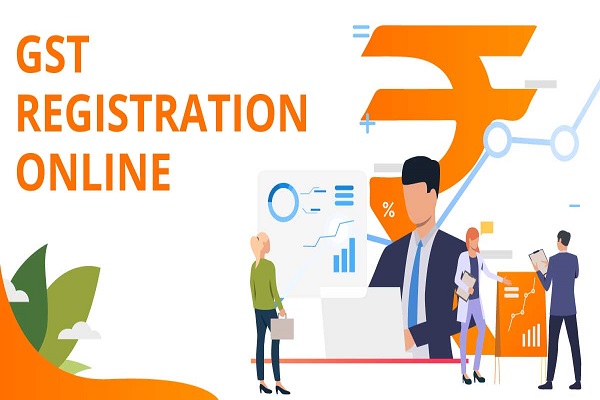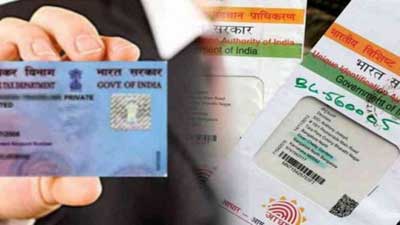GST Registration

Goods and Services Tax (GST) is an indirect tax (or consumption tax) levied in India on the supply of goods and services. The tax came into effect from July 1 2017 through the implementation of One Hundred and First Amendment of the Constitution of India by the Indian government. The tax replaced existing multiple cascading taxes levied by the central and state governments.
ADVANTAGES
BECOME MORE COMPETITIVE
You will be more competitive in comparison to your unregistered competitors since you will carry valid tax registration.
EXPAND YOUR BUSINESS ONLINE
You cannot sell products or services on e-commerce platform without GST registration. If you're planning to give a blow on e-commerce platform like Flipkart, Amazon, Paytm , Shopify or through your own website, you must need a GSTIN.
CAN TAKE INPUT TAX CREDIT
Only Registered GST holders can avail input of GST tax paid on their purchases and save the cost.
CAN SELL ALL OVER INDIA WITHOUT ANY RESTRICTIONS
Without having GSTIN you cannot trade inter-state. This is possible only if you registered your business under GST.
APPLY GOVERNMENT TENDERS
Various government tenders requires GSTIN to apply tender. If you don’t have you may miss the business opportunity.
OPEN CURRENT BANK ACCOUNT
Especially, in case of sole proprietor business Banks & Financial Institution does not open a current bank account in the name of business trade name unless you carry any government proof in the name of your business. GST registration certificate can help you to open a current bank account.
DEALING WITH MNCS
Generally, MNC’s does not comfortable to deal with small business entities until they carry valid tax registration proof.
Get Expert Assistance
Company Registration
ELIGIBILITY CRITERIA

CONDITIONAL REGISTRATION
Section 22 of the ACT specifies threshold limit for GST registration. It states that for following suppliers GST registration is required:
- If the aggregate turnover of any supplier exceeds 20 lakh rupees need GST Registration
- However, if the supplier is based in any of the Special Category States, this threshold limit of aggregate turnover is 10 lakh rupees need GST Registration. Here special category states include states of north-east India, Himachal, Uttrakhand and Jammu & Kashmir.
MANDATORY / COMPULSORY REGISTRATION
Along with these threshold limits, Section 24 of the Act also specifies a list of suppliers for whom GST registration is mandatory. This list includes the following suppliers:
- Anyone required to pay tax under reverse charge.
- Anyone claiming or remitting Input Tax Credit.
- Any person effecting inter-state supply.
- Casual taxable person effecting taxable supply.
- Non-resident taxable person effecting taxable supply.
- Input Service Distributor
- E-commerce Operator
- Any person supplying on behalf of other, whether as an agent or not.
- Every person supplying online information and database or retrieval service from a place outside India to a person in India, who is not a registered person need GST Registration.
- A person supplying through E-commerce who collects tax at source u/s 52.
IMPORTANT DATES
| Return Form | Particulars | Frequency | Due Date |
|---|---|---|---|
| GSTR-1 | Details of outward supplies of taxable goods and/or services effected | Monthly | 10th of the next month |
| GSTR-2 | Details of inward supplies of taxable goods and/or services effected claiming input tax credit. | Monthly | 15th of the next month |
| GSTR-3 | Monthly return on the basis of finalization of details of outward supplies and inward supplies along with the payment of amount of tax. | Monthly | 20th of the next month |
| GSTR-3B | Simple return for Jul 2017- Mar 2018 | Monthly | 20th of the next month |
| GSTR-4 | Return for compounding taxable person | Quarterly | 18th of the month succeeding quarter |
| GSTR-5 | Return for Non-Resident foreign taxable person | Monthly | 20th of the next month |
| GSTR-6 | Return for Input Service Distributor | Monthly | 13th of the next month |
| GSTR-7 | Return for authorities deducting tax at source. | Monthly | 10th of the next month |
| GSTR-8 | Details of supplies effected through e-commerce operator and the amount of tax collected | Monthly | 10th of the next month |
| GSTR-9 | Annual Return | Annually | 31st December of next financial year |
| GSTR-9A | Annual Return | Monthly | 31st December of next financial year |
| GSTR-10 | Final Return | Once. When registration is cancelled or surrendered | Within three months of the date of cancellation or date of cancellation order, whichever is later. |
| GSTR-11 | Details of inward supplies to be furnished by a person having UIN and claiming refund | Monthly | 28th of the month following the month for which statement is filed |
Documents Required For Registration
IDENTITY AND ADDRESS PROOF
Aadhar Card, Aadhar number is now a necessity for applying for any registration in India.
Income tax return can only be filed if the person has linked his PAN card with Aadhar number.
Address proof will be required for all directors and shareholders of the company to be incorporated.
For Indian nationals, PAN is mandatory. For foreign nationals, apostilled or notarised copy of passport must be mandatorily submitted.
Residence proof documents like bank statement or electricity bill should not be more than 2 months old.
All documents submitted must be valid.

PENALTY
Offenders who do not pay tax or fail to make the full payment will face a penalty of 10% of the tax amount. The minimum amount of fine will be Rs.10, 000 if the 10% amounts to anything less. In case of deliberate tax evasions, offenders will be charged a penalty of 100% of the tax amount. The penalty will be 10% of the tax due in case of genuine errors.

Process
LOGON
Log On To Www.Gst.Gov.In.
CLICK ON THE 'SERVICES'
Click On The 'Services' Tab On The Menu At The Top Of The Page.
YOU WILL HAVE THREE OPTIONS
You Will Have Three Options, Viz. 'Registration', 'Payments And User Services'.
YOU WILL BE REDIRECTED
You Will Be Redirected To A New Page Wherein You Will Have To Select Whether You Are A Taxpayer Or A GST Practitioner Before Entering A Few Details Such As The Legal Name Of The Business, The State And District In Which The Entity Is Located, Permanent Account Number, Email Address And Mobile Number. This Is Basically Part-A Of The Form.
THE DETAILS YOU HAVE ENTERED
The Details You Have Entered Will Have To Be Verified By The Portal, So You Will Receive A One-Time Password Or An Email For Confirmation.
BASED ON THE KIND OF BUSINESS
Based On The Kind Of Business You Are Running, You Will Be Required To Upload A Few Documents As Requested.
PART-B OF THE FORM WILL THEN HAVE
Part-B Of The Form Will Then Have To Be Filled In With A Few Details After Which You Will Receive The Application Reference Number Through Email Or SMS.
YOUR APPLICATION WILL THEN BE VERIFIED
Your Application Will Then Be Verified By A GST Officer And It Could Either Be Approved Or You Will Be Requested To Provide Some More Details Or Documents Until The Authorities Have All The Required Information To Approve Your Application.
FREQUENTLY ASKED QUESTIONS
All businesses that successfully register under GST are assigned a unique Goods and Services Tax Identification Number also know as GSTIN.
If a business operates from more than one state, then a separate GST registration is required for each state. For instance, If a sweet vendor sells in Karnataka and Tamil Nadu, he has to apply for separate GST registration in Karnataka and TN respectively.
A business with multiple business verticals in a state may obtain a separate registration for each business vertical.
Small businesses having an annual turnover less than Rs. 1 crore* ( Rs. 75 Lakhs for NE States) can opt for Composition scheme.
GST Council decided to increase the limit to Rs. 1.5 crores but notification is awaited.
Composition dealers will pay nominal tax rates based on the type of business:
- Composition dealers are required to file only one quarterly return (instead of three monthly returns filed by normal taxpayers).
- They cannot issue taxable invoices, i.e., collect tax from customers and are required to pay the tax out of their own pocket.
- Businesses that have opted for Composition Scheme cannot claim any input tax credit.
Composition scheme is not applicable to :
- Service providers
- Inter-state sellers
- E-commerce sellers
- Supplier of non-taxable goods
- Manufacturer of Notified Goods
This scheme is a lucrative option for all SMEs who want lower compliance and lower rates of taxes under GST.
A GST taxpayer whose turnover is below Rs 1 crore* can opt for Composition Scheme. In case of North-Eastern states and Himachal Pradesh, the present limit is Rs 75* lakhs. Turnover of all businesses registered with the same PAN should be taken into consideration to calculate turnover.
Limit is raised to Rs. 1.5 crores after decision taken by the GST Council. However notification is awaited.
Learn the Rules about Composition scheme & Know the pros & cons of being a composition dealer.
Obtain GST registration and file CMP-02 to opt in for the scheme.
For normal registered businesses:
- 1. Take input tax credit
- 2. Make interstate sales without restrictions
B. FOR COMPOSITION DEALERS:
- 1. Limited compliance
- 2. Less tax liability
- 3. High working capital
C. FOR BUSINESSES THAT VOLUNTARILY OPT-IN FOR GST REGISTRATION (BELOW RS. 20 LAKHS)
- 1. Take input tax credit
- 2. Make interstate sales without restrictions
- 3. Register on e-commerce websites
- 4. Have a competitive advantage compared to other businesses
Yes, you can apply for GST Registration online. You can simply register your business on the official GST portal and then scan and upload all the required documents. You will then receive an acknowledgement. A GSTIN will be generated on acceptance of the application and a temporary password and login will be sent. GSTIN is a unique 15-digit ID.
The validity of GST certificate is forever. It is just a one-time certificate.
The primary authorised signatory is the person who is primarily responsible for performing an action on the GST System Portal on behalf of the taxpayer.
